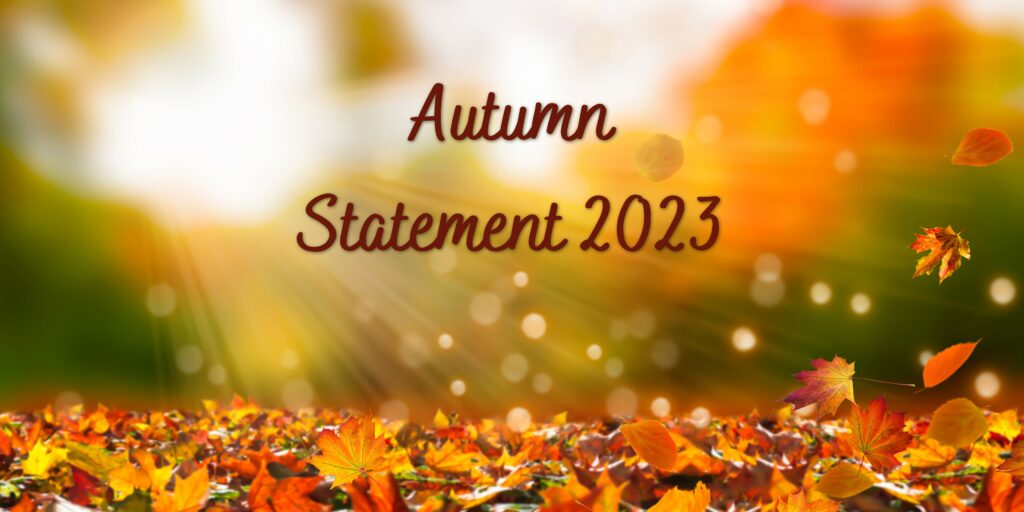Autumn Statement – November 2023
On the 22nd November 2023, Jeremy Hunt presented his Autumn Statement. With his primary focus on the cost of living crisis, Hunt stated that the 110 measures included within the statement will help stimulate the British economy by lowering taxes, increasing productivity, and boosting business investment.
So, what did today’s Autumn Statement bring for both individuals and businesses? Below we have summarised the key announcements:
Individuals:
National Living Wage: The National Living Wage will increase by at least 9.8% for all individuals over the age of 16.
Working Age Benefits: Benefits are set to increase by 6.7% from April 2024.
Local Housing Allowance: Rates will increase to the 30th percentile of local market rents from April 2024.
State Pension: From April 2024, the new state pension will increase by 8.5%.
Class 1 National Insurance: The main rate of employee NI contributions will reduce 12% to 10% from January 6th 2024.
Self-Assessment: From tax year 2024/25, individuals with income only taxed through Pay As You Earn (PAYE) and above the current £150,000 threshold, will no longer be required to file a self-assessment tax return.
National Insurance Contribution Record: The deadline to fill in any gaps in your National Insurance record from 6 April 2006 to 5 April 2018 has been extended to April 2025.
Lifetime Allowance: The lifetime allowance for pension pots will be removed from April 2024.
ISA: Individuals will now be allowed multiple subscriptions to ISAs of the same type every year and must be 18 to open an Adult ISA. Both changes come into effect from April 2024.
Businesses:
Business Rates: A new support package has been announced worth £4.3 billion and the small business multiplier will be frozen for 2024/25.
R&D Expenditure Credit (RDEC) and SME schemes: The merger of these two schemes will mean the rate loss-making companies are taxed within the merged scheme will be reduced from 25% to 19%.
Class 2 National Insurance: Self-employed individuals with profits over £6,725 will not be required to pay Class 2 National Insurance in order to receive their state pension credit. Those with profits below £6,725 can voluntarily make Class 2 NI contributions in order to receive a state pension credit. These changes take effect from 6 April 2024.
Class 4 National Insurance: Self-employed individuals will now be subject to a main rate of Class 4 National Insurance of 8% rather than 9% from 6 April 2024.
Full expensing: The relief which allows the full write off of the cost of qualifying plant and machinery investment will now be made permanent.
Training costs for self-employed: Guidance will be rewritten for deducting training costs which will allow more self-employed individuals to deduct costs for updating existing skills, maintaining pace with technological advances, or changes in industry practices.
As always, our team are here to answer any questions you may have. Please do contact us if you have any questions or call us on 01276 61203

